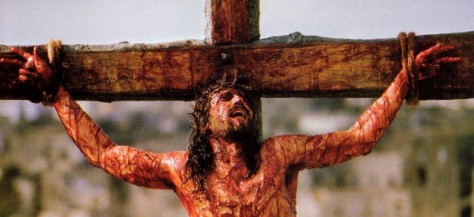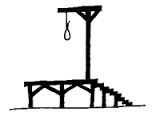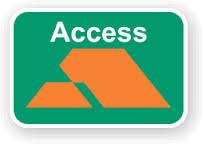In Victorian times it was the fashion to have bible texts hanging on the wall in order constantly to remind people that God was keeping an eye on them.
Some examples:
“Bless this house” in the lounge
“How long wilt thou sleep, O sluggard? when wilt thou arise out of they sleep?” ove a child’s bed
“Be sure your sins will find you out” could be seen on prison walls.
I did hear once that on the wall of a nursery in a great house the text was hung “we shall not all sleep, but we shall all be changed”. I’ve never been sure whether the person who chose that text for that setting had a marvellous sense of humour or simply didn’t see the double meaning!
If you were choosing a Bible text to hang on the wall of your house, I wonder what you’d choose…
I wouldn’t mind betting it probably wouldn’t be the verse 34 of today’s reading, where Jesus says “Don’t think it’s my job to bring peace on earth. I didn’t come to bring peace – I came to bring a sword!”
What’s happened to the idea that Jesus is the Prince of Peace?
God’s way of looking at people and situations is not our normal, habitual way. It rarely fits with our deep sense of tradition and continuity and respectability.
The context in which Jesus spoke his words of division rather than peace is rooted in a particular historical moment, in a particular point in Jesus’ life.
He’d been travelling around, mostly in Galilee, experiencing the adulation of the crowds, healing the sick, casting out demons… he was only too aware the people were beginning to have ideas, beginning to see him as the promised Messiah.
The problem was, they had their own idea of what that meant and it didn’t chime with the reality.
Messiah, to them, meant a military leader to free them from political tyranny. That was the traditional view.
Jesus had continually tried to show them in his way of life that the Messiah was actually to free them from religious tyranny – from the tyranny of the Law, from the tyranny of self-righteousness, from the tyranny of trying to earn their right to stand before God.
Needless to say, this went down like a lead balloon with the religious authorities and all the pious Jews who took great pride in keeping the Law, doing things right… remember the story of the Rich young Ruler, one of the most privileged in Jewish society at the time?
He comes to Jesus and asks “what must I do to inherit eternal life?”
Jesus replies “you know the law…”
To which the Ruler responds “I’ve kept all the laws since my youth”
And Jesus’ response to that? “one more thing is needed – go, sell all you have, give to the poor and come and follow me”. Give up your security in anything other than your relationship with me.
Jesus’ message was not a comfortable one. It was an extremely uncomfortable one. It challenged them to move beyond mere adherence to the letter of the Law. It challenged them to a change of attitude, a change of heart and mind. It called them to an openness before God which was prepared to admit that they did not have a monopoly on the truth, that they could not take confidence in their heritage or their history or their race or their wealth or their social standing or their total keeping of the rules of their faith.
It called them to an attitude of compassion and tolerance towards those who flouted the social norms – the loose-livers, the collaborators with the occupying forces, the beggars… the dregs and rejects of society. Jesus was also a devout, faithful Jew – but for Him, that led him to consort precisely with those who earned the disapproval of the worthy, high-standing members of society.
Jesus knew that the time was coming when individuals would need to make up their mind about him and about his real radical message which turned their preconceptions on their head.
People would be divided.
Households would be divided.
The nation would be divided.
Jesus was politically astute and could see the way things were going.
If he wasn’t prepared to water down his message, to be more conciliatory towards both Roman political leaders and Jewish religious leaders, it could only end in one way.
The Romans were ruthless in their squashing of any rebellion, and the Jewish authorities were appeasers – peace at any price, even at the cost of sacrificing an innocent man.
And as night follows day, this is always potentially the price to be paid by any true follower of Christ – opposition from friends and family, from neighbours and from the leaders of society.
Jesus doesn’t like what he can see ahead if the hearts and minds of the majority turn against him.
In the Gospels we see a Jesus who is utterly human – God entering fully and deeply into the reality of what it means to be human.
Not just the joy of that, but also the pain.
We also see a Jesus who is utterly divine – God in Jesus holding fast to the truth of the gospel of love and tolerance and forgiveness whatever the consequences. And this is the Jesus who challenges us also to put His kingdom values first regardless of the consequences.
What are those kingdom values?
Feed the hungry
Clothe the naked
House the homeless
Welcome the outcast and the refugee
Heal the sick
Comfort the sorrowing
Stand up for the underprivileged
Speak truth to injustice
Forgive without counting
And do all of this, all of the time, for all whom we encounter.
Choose this day whom you will serve.





